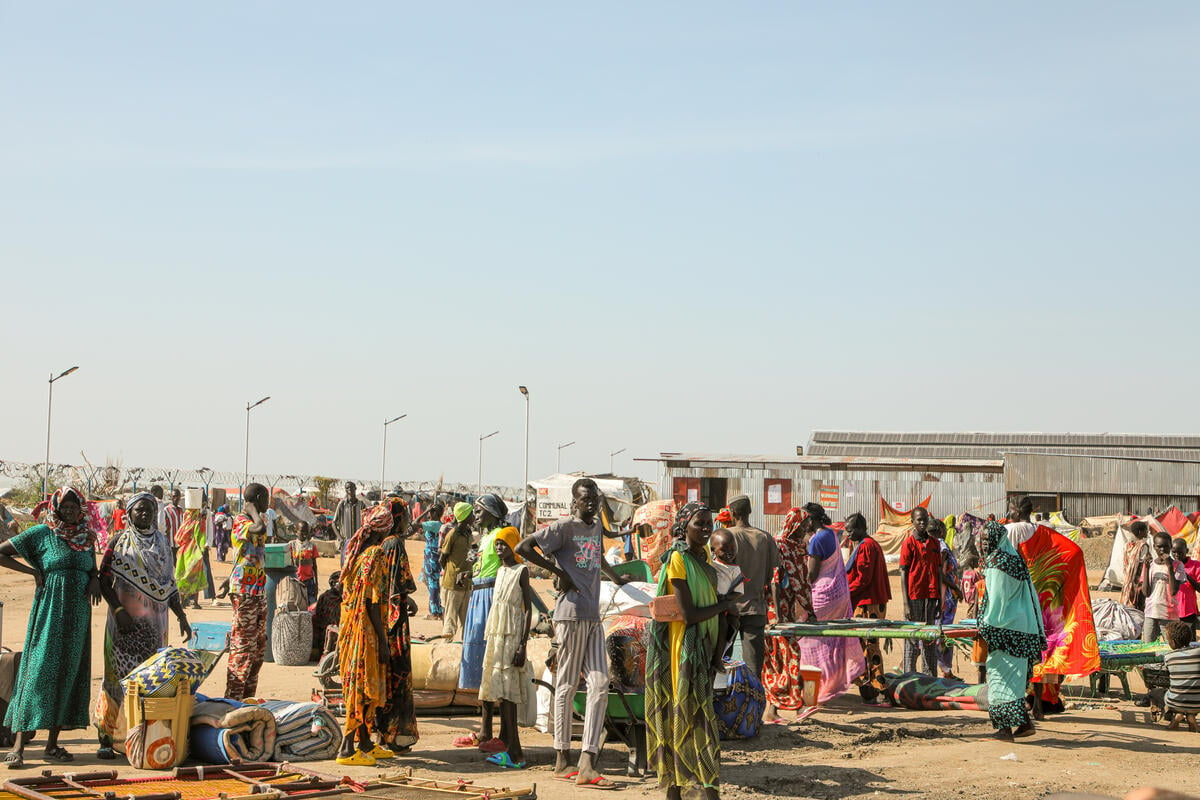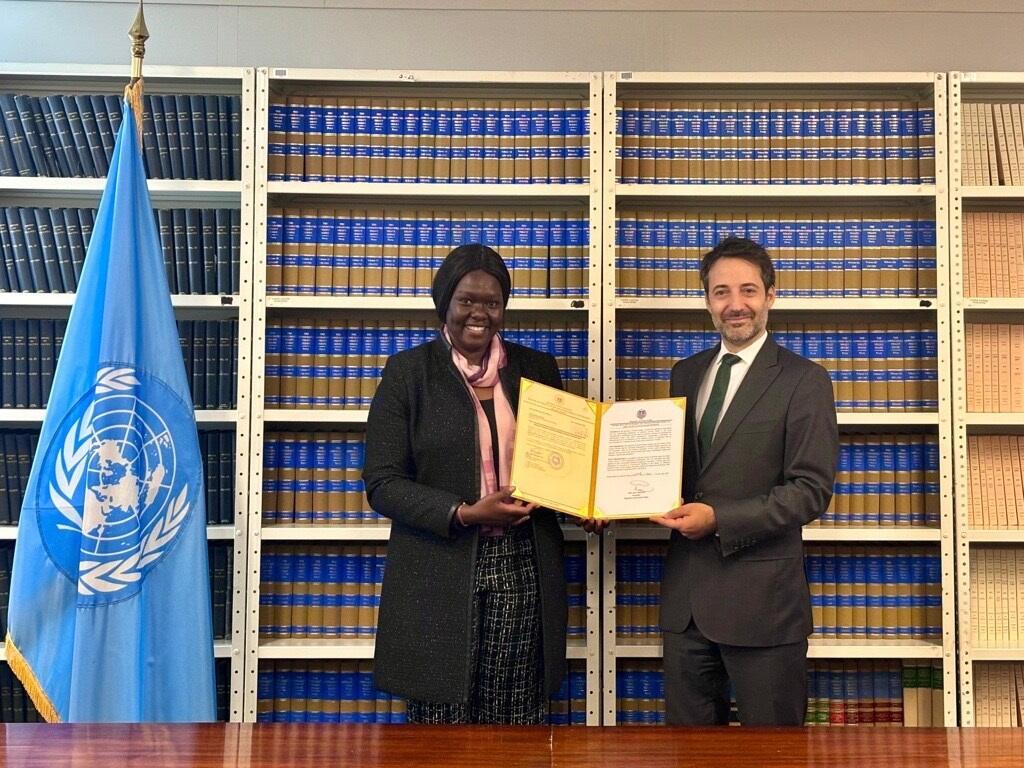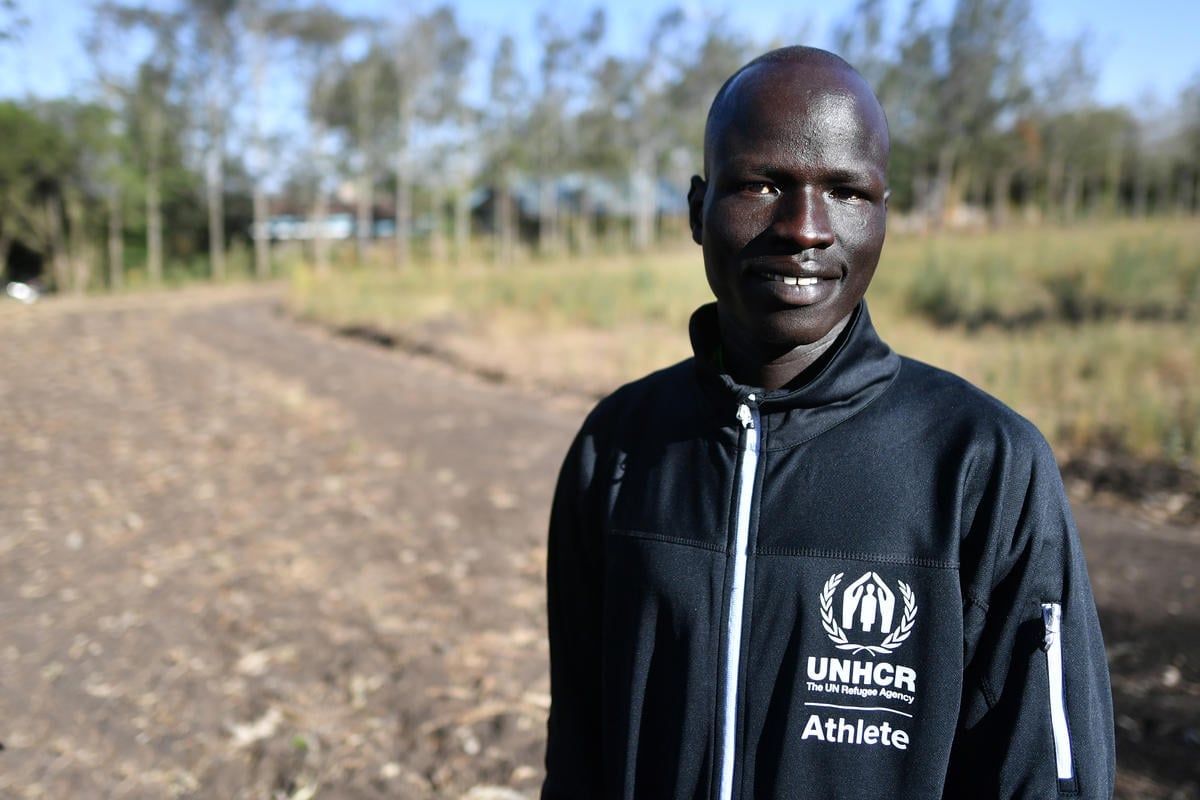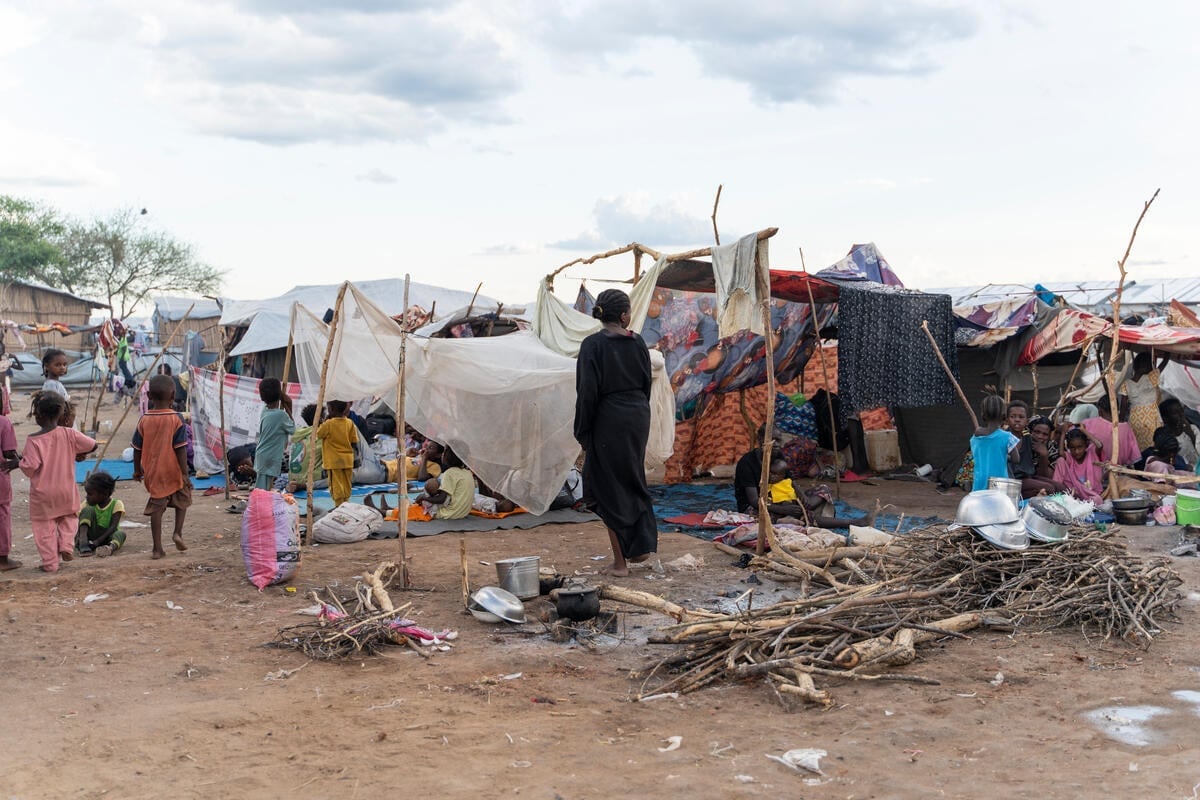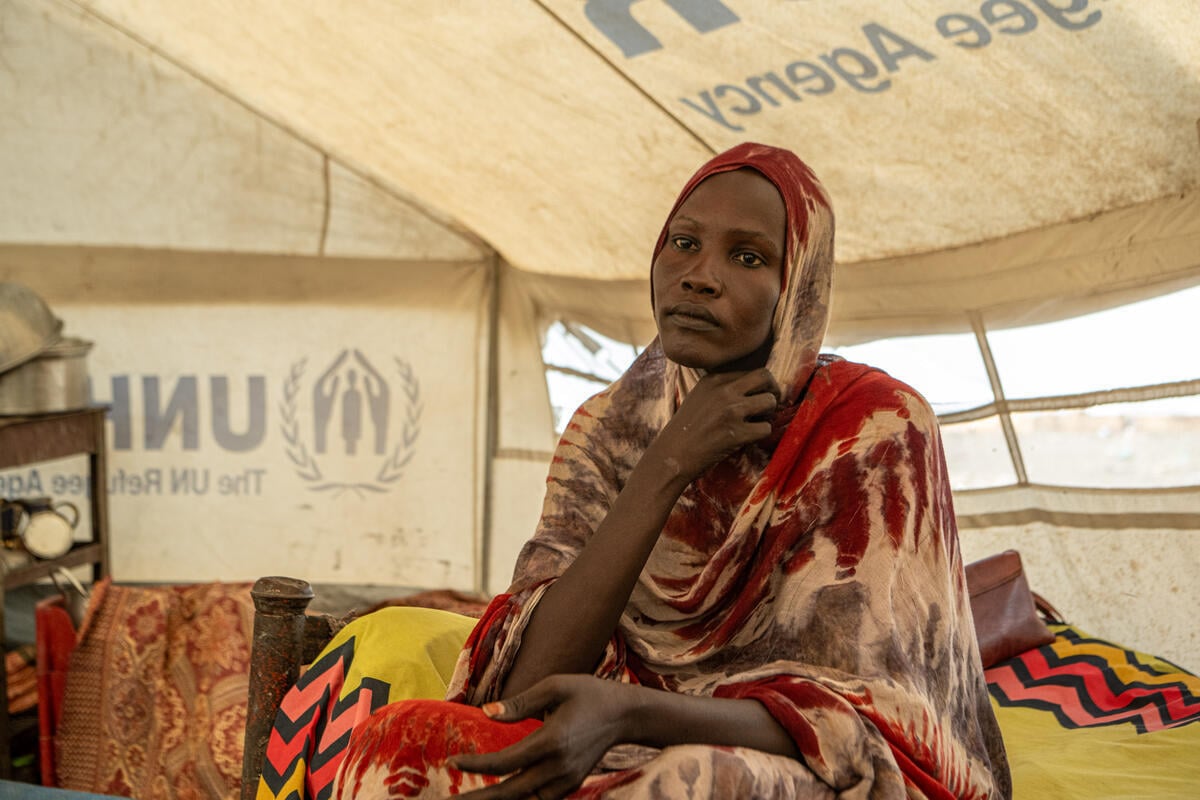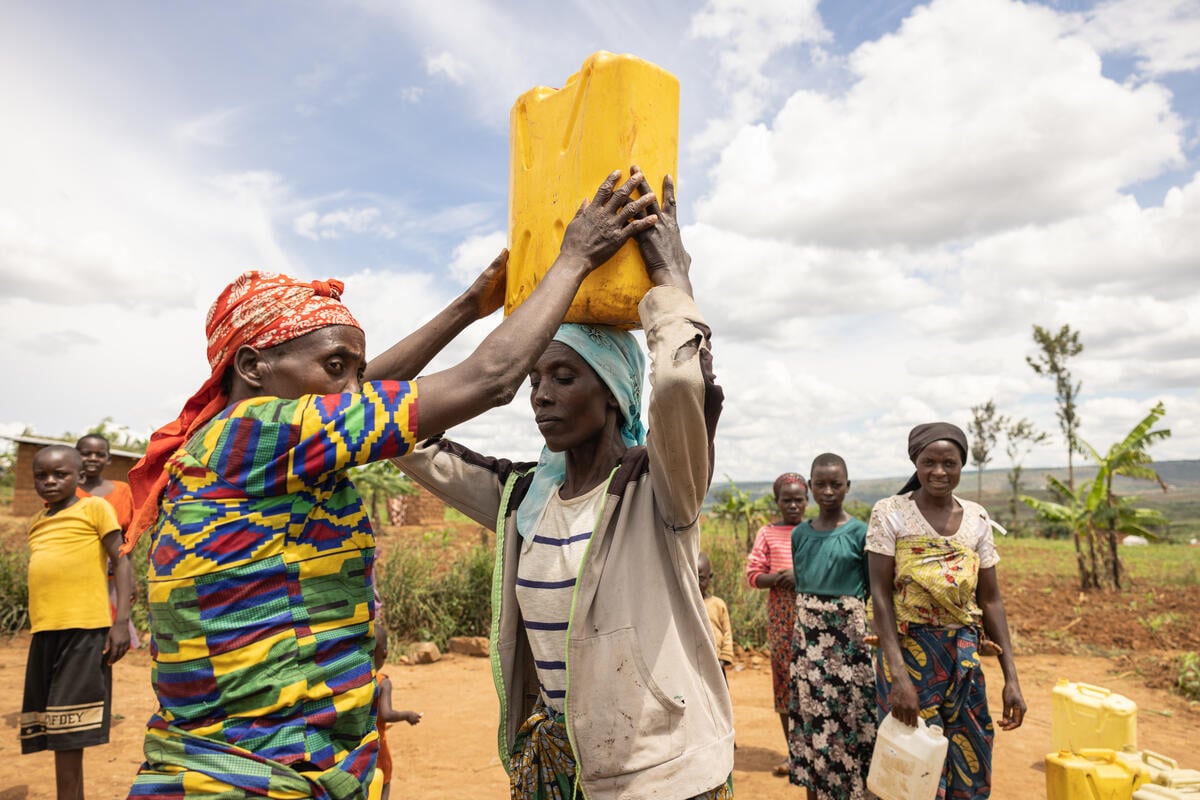Heads of World Food Programme and UN Refugee Agency visit South Sudan and Ethiopia amid alarming spread of hunger and displacement
Heads of World Food Programme and UN Refugee Agency visit South Sudan and Ethiopia amid alarming spread of hunger and displacement
JUBA, 31 March 2014 - Alarmed at the impact of ongoing violence in South Sudan, the heads of the World Food Programme (WFP) and the United Nations Refugee agency (UNHCR) arrived here today on a joint trip to meet conflict-affected people and to review the on-going response and needs amid a spiralling humanitarian crisis.
More than 800,000 people have been displaced in South Sudan by the conflict, which flared up on 15 December 2013. This includes 68,000 people who are sheltering in UN peacekeeping bases. A further 254,000 refugees have crossed into neighbouring countries seeking shelter and food. Additionally, South Sudan was also hosting some 220,000 refugees from Sudan in camps close to conflict areas.
WFP's Executive Director Ertharin Cousin and the UN High Commissioner for Refugees António Guterres will spend two days in South Sudan to meet displaced people, partners and local authorities, before crossing over the border to meet some of the more than 80,000 refugees in Ethiopia.
"It is heartbreaking to see that some of the very people who had fled the war two decades ago, people we helped to return to South Sudan after independence, are having to flee for their lives again, many back to the very same places where they lived in exile," said Mr. Guterres, noting 40,000 people have crossed into Sudan to escape recent fighting.
Humanitarian access to refugees, internally displaced persons and other vulnerable populations is increasingly challenging due to continuing warfare and shifting conflict lines. The two Agency heads are concerned about the number of people cut off from any form of aid and the concern that violence has put farming to a halt in some areas.
"Large-scale population displacement and disruption of markets and trade routes are creating a food security crisis," said Ms. Cousin. "People are in acute need. Humanitarians require two things: safe access to those in need and the funds to bring in lifesaving supplies - food, shelter, vaccines, healthcare and other aid. Several countries have contributed generously, but at current levels we are only able to cover a fraction of the needs."
In the more than 100 days since the start of the conflict more than half a million people have received food assistance inside the country, but continued conflict, combined with the onset of the rainy season has made it difficult to reach many people in need. The relief effort has been further hampered by a severe lack of funds.
An inter-agency appeal led by UNHCR is calling for more than USD 370 million to fund the refugee response in Ethiopia, Kenya, Republic of Sudan and Uganda. Inside South Sudan, WFP is facing a funding shortfall of USD 224 million over the next six months, while humanitarian partners require a further USD42 million for shelter and other non-food items.
WFP is the world's largest humanitarian agency fighting hunger worldwide. On average, WFP reaches more than 90 million people with food assistance in 80 countries each year.
UNHCR leads and co-ordinates international action to protect refugees and safeguard their rights and work for their well-being.
Follow us on Twitter: @refugees and @wfp
For more information please contact:
- Challiss McDonough, WFP, mobile: +254 707 722 104, [email protected]
- George Fominyen, WFP Juba, mobile: +221 922 465 247, [email protected]
- Melissa Fleming, UNHCR, mobile: +41 79 557 9122, [email protected]
- Teresa Ongaro, UNHCR Juba, mobile: +211 927 770040, [email protected]


